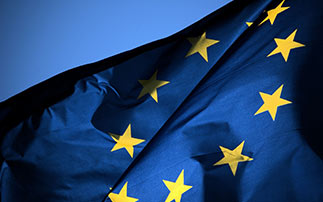Keywords: EU enlargement policy
At the cursory glance, the EU Enlargement policy seems to be quite straight-forward – any European country can apply for membership (Article 49, TEU) if it respects the EU values (Article 2, TEU) and is committed to promoting them. Apparently, for Western Balkan states, which were promised a future within the Union at the 2003 Thessaloniki Summit, the accession path has been more burdensome. Over the 20-year-path only four countries out of six were granted the status of official candidate countries, namely:
- Albania (2014)
- The Republic of North Macedonia (2005)
- Montenegro (2010)
- Serbia (2009)
Whereas Bosnia and Herzegovina (since 2003) and Kosovo (since 2008) are still considered as potential candidate countries.
To deliver on promises and bring about the achievement of the accession criteria, the EU has allocated funds to the region demonstrating its genuine commitment to welcome the Six. Although, even at the October 2021 Brdo Summit, Ursula von der Leyen reaffirmed that the Western Balkans’ future is within the EU, the Six remain doubtful of the possibility of EU membership. To win back trust, the Union has pledged new funds but drawing on the reforms’ progress, the current funding seem to be insufficient to bring about the EU enlargement and reinforce fundamental changes.
- The overview of the EU funds for the Six
Historically, the EU has been seeking to transform the states with the help of targeted economic and financial assistance and additional support mechanisms, such as the Stabilisation and Association Process (SAP), PHARE (2000-2001), Community Assistance for Reconstruction, Development and Stabilisation (CARDS) (2000-2006), Instrument for Pre-Accession Assistance (IPA), in particular IPA I (2007-2013), IPA II (2014-2020) and IPA III (2021-2027). Since 2007, IPA has been a sole funding mechanism to streamline the Union’s accession assistance.
The Six are also associated or in ongoing association negotiations to such funding programmes as Erasmus+, LIFE, and Horizon Europe. In addition, they are part of the Interreg transnational programmes and tailor-made Interreg IPA CBC programme which are funded by the European Regional Development Fund (ERDF).
- Instrument for Pre-Accession Assistance (IPA III)
The current €14 billion Instrument for Pre-Accession Assistance (IPA III) for the 2021-2027 EU budget, adopted by the Union in September 2021, has drawn some lessons from the IPA II (2014-2020) implementation. The key novelties are in the way the budget is allocated (programming based on themes and priorities, rather than by country, as well as stronger performance-based focus), increased flexibility on funds allocation, and greater coherence and complementarity with the Neighbourhood, Development and International Cooperation Instrument – Global Europe (NDICI) and other EU internal policy programmes, for instance the Green Deal.
- Effectiveness of the EU funds in the accession process
The current Pre-Accession Assistance Instrument (IPA III) proclaims the goal to “prepare beneficiaries for future membership of the Union”. However, for the candidate countries, the process which dragged on for 20 years causes nothing but ‘accession fatigue’. Since 2003 only Montenegro and Serbia have started accession negotiations, yet, despite almost 10 and 7 years of negotiating, they have together provisionally closed only 5 chapters out of 35 (chapters unify sets of conditions for membership). Apparently, at such a pace, the Six are decades away from meeting all the accession criteria. The 2021 Balkan Barometer demonstrates that only one-fourth of citizens remain optimistic of EU accession by 2025, whereas 22% believe it will never happen.
Moreover, the funds’ size has been stagnant for over two decades and, according to some, do not adequately correspond to the number of reforms to be made to align with the EU standards. The EU vow to leverage up to €30 billion for the region in the framework of the Economic and Investment Plan (EIP) sounded more reassuring since it is supposed to focus on concrete infrastructure projects and demonstrate some tangible results of the EU accession process to the citizens.
- Much more needs to be done: accession costs for the Western Balkans
The European Union is by far the biggest investor in the region (around 60% of FDI stock), notwithstanding the WB GDP per capita is by far lower than the EU average. The costs for associated with the modernization of the economy (increased requirements for the quality of goods and services, the use of labour, environmental protection, etc.), as well as potential inability of regional products to compete on EU common market could have an adverse impact on the Western Balkan countries’ economies. In addition, in the conditions of open borders and high regional unemployment, the problem of labour migration and ‘brain drain’ might become very acute. Better funding mechanisms, tailored to the needs of the Western Balkans’ people would undoubtedly make the difference, but more funds will not resolve the bigger problem, notably people’s scepticism on the possibility of EU membership.
- No EU-33 without consistent policy between the 27
The lagging accession negotiations opening, delayed granting of candidate status and such underlying political impediments, as ‘Kosovo problem’ (five EU member states do not recognise its independence), some countries’ desire to reconsider the whole accession procedure, and concerns caused by the Central European democracy violations, to name but a few, harm the EU enlargement policy objectives stronger than insufficient funding. Given the unstable nature of the region and reported democratic backsliding, the lack of hope may provoke rollback of reforms. The prospect of EU membership has been incentivising the Six to adhere to a Western, democratic, market-driven path of development, inherent in respecting human rights, liberal values and respecting the rule of law. Any unwary statement or lack of political progress (e.g. opening of Chapters of the acquis) can slide them back into violations of democracy and regional instability.
The EU funds help implement incremental changes that might translate into big societal transformations and help the Six align with the EU criteria, but it is crucial to get the bigger picture and align the funding mechanisms with consistent political gains, which, apparently, has not been the case lately.
Alena Bogdanova


